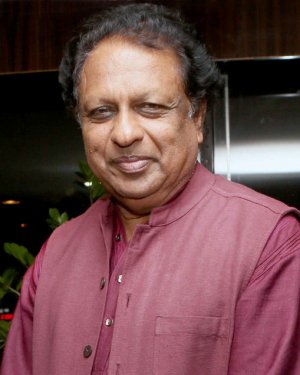
Diminished Multilateral Diplomacy
Covid-19 has struck at the roots of multilateral diplomacy by making nations run helter-skelter to save themselves.The instinct for self-preservation drives people into loneliness; it does not promote cooperation. Even worse, it has made it impossible for the World Health Assembly which is responsible for containing the pandemic, even to hold a meeting to deliberate on possible remedies for fear that such gatherings will increase the infection and mortality rates. Even after the world wars, it was the facility for the victors and the vanquished to meet and negotiate peace agreements that paved the way for peace and reconciliation. Those peace conferences characterised by “jaw jaw” after “war war” will become a thing of the past.
Historian Yuval Harari prophesied in Davos recently: “Whereas in the past, humans had to struggle against exploitation, in the twenty-first century the really big struggle will be against irrelevance” on account of the dominance of technology. “Those who fail in the struggle against irrelevance would constitute a new“useless class” – people who are useless not from the viewpoint of their friends and family, but useless from the viewpoint of the economic and political system.”
But suddenly it turned out that the technological advancement became paramount not only to fight the pandemic, but also to provide an alternative in the form of virtual conferences to enable leaders to confabulate from their quarantines in sanitised palaces. It worked fairly well for small groups like SAARC and G-20 and G-7, but when it came to the World Health Assembly with 194 members, it looked like a football groundwith commercials playing on screens all around. Heads of State, Heads of Government and military leaders appeared in full panoply on the screens to lament the disaster that had struck humanity. They seemed vulnerable without the huge delegations and bodyguards who used to accompany them when they strutted about in the corridors of the UN and huddled in the Delegates Lounge.
Virtual conferences are just a shadow of the global conclaves that have become indispensable for nations to project their accomplishments at home, express their concerns about the state of the world, suggest prescriptions, promote ideas, make compromises, haggle over words and to sign agreements from which they walk away at will. It created an industry which promoted tourism, the hospitality industry and air travel. The most exotic places were chosen to hold these meetings even when facilities remained vacant in designated cities. From San Francisco, Breton Woods to Helsinki, Paris, Kyoto, Tlatelelco and Rio de Janeiro, cities came to be known for the conferences held there long after the agreements reached there became part of history.
The charms of multilateral diplomacy were not confined to generating ideas, solving problems and building peace, but also travelling in style, earning frequent flyer miles and mixing business with pleasure. No wonder the Commonwealth Heads of Government Meeting (CHOGM) came to be known as Chaps on Holiday on Government Money! In my early days in the UN when decolonisation was still a passion, many bodies like the Council For Namibia and the Committee on the Inalienable Rights of the Palestinian People used to spend tons of UN money on travel to preach to the converted by promoting causes in countries which were already supportive. I remember someone saying, while watching the Blue Belles in a night club in Paris with a former guerrilla fighter in Namibia what sacrifices we would not make for the people of Namibia! All these luxuries disappeared some years ago, when the US stopped paying its full contribution to the UN to stop these freedom tours.
As an institution, the first to be paralysed was the United Nations, which had the responsibility to unite the world against the pandemic, partly because there was no chance for the delegates to huddle around and exchange ideas. China, as the President of the Security Council, made use of the practical difficulties in meeting to delay even an informal meeting of the Council. When it became clear that a virtual meeting was possible, China had to come out with its personal objections. If the usual confabulations of professional diplomats had taken place, China would have come under greater pressure to hold a meeting of the Security Council. Not to hold a meeting at the time of an unprecedented threat to international peace and security was an unforgivable dereliction of duty.
The World Health Assembly (WHA), the annual gathering of the members of the WHO was a tame affair this time essentially because it was a virtual conference. Multilateral diplomacy is not a series of recorded speeches delivered from different parts of the globe and adoption of a document approved over the internet without a public debate. The leaders and their Sherpas engage in a long process of setting the agenda, debating the issue, forcing compromises, even shaming those who blindly stick to their instructions framed at home without taking the sentiment of the conference into account. Without these processes, the decisions taken in such conferences appear illusory.
As for the results of the conference, the vast majority of the countries of the world wanted to go to the bottom of the origin of Covid-19 through an independent investigation. There was also a strong desire on the part of many countries, including some which have a “One China” policy to invite Taiwan as an observer to the WHA as it used to do till 2016.China fought on both these fronts. On the one hand, it wanted to be considered a victor in the battle against the pandemic and a country, which is capable and willing to assist the rest of the world without any investigation into Chinese culpability in hiding the advent of the coronavirus, if not creating it. On the other hand, China wanted to reinforce its “One China” position when it found that Taiwan’s claim to an observer status in the WHA was gaining traction in the wake of Taiwan’s extraordinary success in tackling the virus. When it became clear that it cannot win on both fronts, China retreated from the first front and claimed victory on the second. The results may have been the same even if it was a real conference, but China would not have got away so lightly.
The aggravation of the US-China tug of war was very visible, but if Xi Jin Ping and Donald Trump were both there, the nature of the debate would have been different. Amusingly, both Trump and Xi sent letters to the Director General to reinforce their positions rather than address the Assembly on their primary concerns. The Director General would have also faced the heat much more if 194 delegations were milling around in Geneva, instead of watching television screens at home.
Multilateralism was already on the decline when the pandemic broke out and it virtually destroyed its ambience and habitat. The technological glitches embarrassed the speakers and the WHA Secretariat. We can only hope and pray that we can return to traditional multilateral diplomacy with all its vigor and authenticity. Multilateral diplomacy is not simply hard work, the ability to juggle around with ideas and long hours of negotiations late into the wee hours of the morning. It is also about air travel, nice hotels, classy restaurants, tourism and feeling the pulse of the world.
The facts and views expressed in the article are those of the writer.

